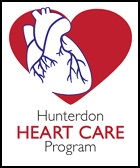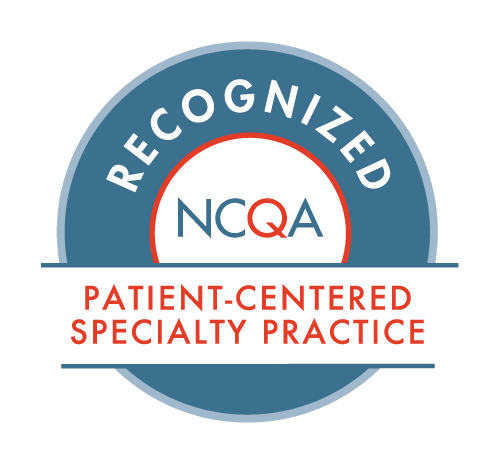Hunterdon Heart Care Program

Our Vision – to be a valuable resource for patients with heart failure or cardiomyopathy, their families, and the community
Our Goal – to enhance quality of life and improve patient outcomes by:
- Reducing hospitalizations
- Enhancing education and knowledge
- Providing close monitoring tailored to patient needs
- Increasing access to care
Advantages of Hunterdon Cardiovascular Associates’s Heart Program:
Evaluation and Treatment of Heart Failure utilizing a multidisciplinary approach:
- Nurses
- Nurse Practitioners/Physician Assistants
- Cardiologists
- Pharmacist
- Palliative Care Team
We educate our patients to actively participate in their health care, by monitoring closely for worsening heart failure symptoms. If this occurs, we encourage our patients to reach out to the heart failure team for early treatment to prevent hospitalization and emergency room visits.
- Same day office evaluation
- In-office administration of medications; if fluid retention occurs
Sign Up Today!
If you have been told that you have Heart Failure, you are not alone. You are among 6 million Americans that have this chronic disease.
Heart failure does not mean your heart has stopped or that you had a heart attack. Heart failure means that the heart is not pumping blood as well as it used to or with as much blood as the body needs. In the beginning you may not feel any symptoms. However, with time you may start to feel tired, short of breath, or develop swelling in your legs or feet.
While there is no cure for heart failure, treatment can slow the disease and help you feel better. With proper care, the right medications and lifestyle changes, you can live a long and productive life.Call us at (908)-788-1710 to contact us today and learn more about Hunterdon’s Heartcare Program.
Frequently Asked Questions About Heart Failure:
What is Heart Failure?
Heart Failure occurs when the heart muscle is not strong enough to pump blood to the body or when the heart has to work harder to overcome high pressures in the lungs or chronically high blood pressures. Sometimes heart failure may improve with medicine. New treatments have made it possible to slow disease progression and help people live longer.
What is Cardiomyopathy?
Cardiomyopathy is a disease of the heart muscle in which it becomes thick, stiff, enlarged, or weak, thus potentially leading to heart failure.
Some common causes of heart failure are:
- Coronary artery disease
- High blood pressure (hypertension)
- Abnormal heart valves
- Disease of the heart muscle (cardiomyopathy)
- Abnormal heart rhythm
- Thyroid disease
- Alcohol misuse
- Pregnancy
- Infections
Other Factors that can lead to heart failure include:
- Diabetes
- Drug abuse
- Obesity
- Pulmonary hypertension
- Smoking
- Lung Disease
- Sleep apnea
Signs and Symptoms of Heart Failure:
- Shortness of breath
- Swelling/bloating
- Weight gain
- Feeling tired or weak
- Dry cough
- Chest pain
- Nausea or loss of appetite
Benefits of the Hunterdon Heart Care Program:
- Access to support via phone and intra-office evaluations
- Early detection of symptoms, which often can reduce hospitalizations and emergency room visits
- Education regarding how dietary modifications and the use of certain medications can improve quality of life
- Intra-office administration of IV medications, if necessary, for symptom relief
- Evaluation and treatment utilizing a multidisciplinary approach
How to Prevent Heart Failure in the Future:
Manage your disease by learning to take care of your health. By changing your lifestyle you can take control of your disease, so the symptoms of the disease do not control you!
Monitor Daily Weights
Weigh yourself every morning as soon as you get out of bed and use the bathroom, but before you eat or dress. A sudden weight gain can mean more fluid is building up in your body and your heart failure is getting worse. Call your healthcare provider if you gain 2-3 pounds overnight or 5 pounds in a week.
Follow a low sodium diet
- Remove the salt shaker from the table (one teaspoon of table salt has 2,300 mg of sodium)
- Do not use salt when cooking food
- Use spices, herbs & other seasonings to flavor food
- Eat fresh and frozen vegetables (instead of canned vegetables)
- Eat fresh fish, poultry and meat (instead of processed or canned meats)
- Snack on fresh fruits and vegetables.
(instead of salty snack foods such as pretzels, chips or popcorn) - Avoid fast food restaurants
Medications
A combination of medications are very important for keeping you feeling well and controlling the disease. Medications can:
- Improve the pumping action of your heart
- Remove excess fluid from your body
- Help you live longer
- Make you feel better
- Increase energy levels
- Help you stay out of the hospital
It is important to take your medications as directed. Stopping or missing doses of medications can stress out your heart and cause fluid to build up. This can lead to hospitalization.
Heart Care Team:
Yaser Elnahar MD, FACC
Jonathan Horiuchi, MD, FACC
Rupen Parikh, MD, FACC
Jonathan Rhoads, PA-C, MHS, FAAPA, AACC
Lisa Davis, MSN, RN, FNP-BC, CHFN
Fred Banerman, PA-C
Tracey Czarnecki, RN
Pat Wirasnik, LPN
Kate Smith, LPN
Meredith Dudley
To enroll, or for questions please call us at 908-788-1710 x 211
RESOURCES:
Heart Failure/American Heart Association
Heart Failure/NHLBI
Heart Failure/Cleveland Clinic
Cardiomyopathy in Adults
Heart Failure Medication decision aid
Low Sodium Diet:
CRT (Cardiac Resynchronization Therapy) with Defibrillator Decision Aid
Implantable Cardiac Defibrillator Decision Aid
- Guidelines for how to have advance care planning conversations
- Guidelines on topics to discuss when talking to others about their advance care wishes
- Creators of “Five Wishes”
- The National Institute on Aging presents a comprehensive and educational guide in layman’s terms for advance care planning
Hunterdon County Advance Care Planning Hotline:
908-788-2573
Schedule A Consultation
To learn more about our Heart Care Program for Heart Failure, contact us at (908)-788-1710 x 211 for more information.



